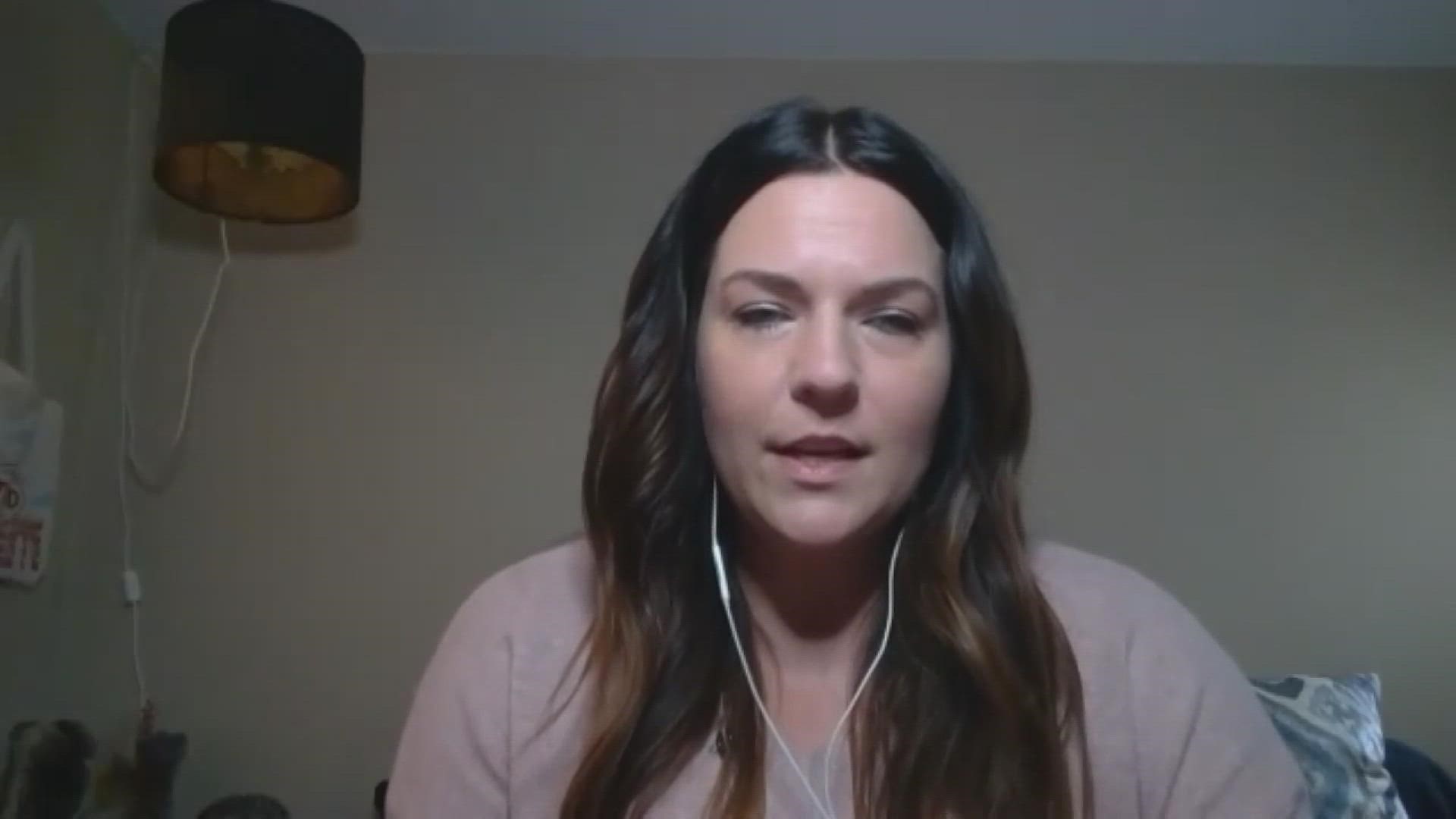January is Human Trafficking Awareness Month and for the first time ever, Washington state has launched a statewide campaign.
This week on the Mindful Headlines podcast, KING 5’s Jessica Janner Castro talks to a survivor of sex trafficking.
“The reality is trafficking happens a lot of times, locally,” said Rebekah Covington, a survivor.
She grew up in Federal Way and fell into the sex trafficking industry when she was 18 years old.
Covington recently helped the state of Washington launch a new anti-human trafficking campaign designed to encourage victims to seek help themselves, a first of its kind. Posters and signs with the words "You Are Not Alone" will be visible in airports, marine ports and other traffic hubs, and they will be translated into several languages.
“We really wanted to focus on the survivor or person experiencing a trafficking situation, so they can self-identify,” said Covington about the new campaign’s slogan. “Most people don’t know they’re being trafficked.”
Covington is now the corporate relations manager at the nonprofit Businesses Ending Slavery and Trafficking (BEST) as a way to help leaders and businesses learn how to better help victims.
Surveys of trafficking victims show that 38% traveled by plane at some point during their exploitation and 63% used mass transit, hidden in plain sight.
Part of the new campaign also involves free training for airport employees to recognize the signs of human trafficking, which include a person looking confused, signs of physical abuse or being with someone who appears to have control.
Resources to help end human trafficking
Real Escape from the Sex Trade (REST), a direct service agency in Seattle
The Lantern Project, which offers education on human trafficking in schools, Seattle
Previous Mindful Headlines podcast episodes
Washington's trailblazing Black senator is shaping the conversation on foster care and mental health
"Mindful Headlines" is a news podcast about the Pacific Northwest that explores how our psychology intersects with current events.
The way we interact with our world is influenced by the way we perceive the world. In turn, our collective minds shape the issues that make headlines in our local communities and nationwide.

